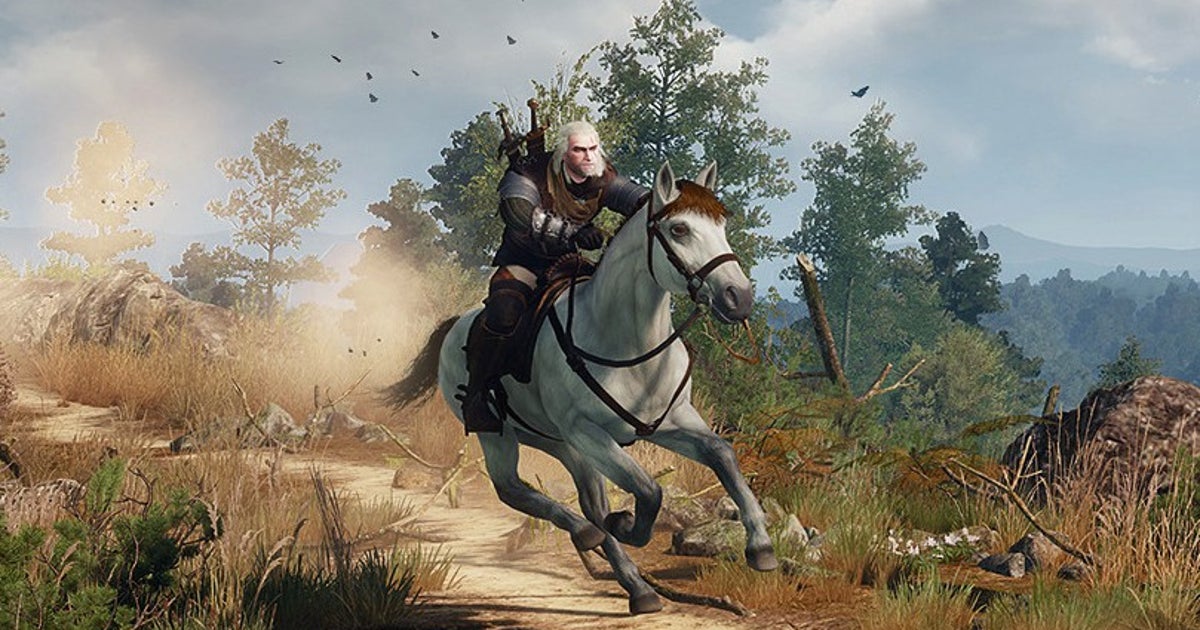I can’t help but read this headline as, “with climate change and the rise of fascism, the real world is ending, but how is this for a distraction: why can’t RPGs get the sense of urgency right?”
And like, this is genuinely an article and discussion I’m interested in, so this is not a criticism of anyone or anything other than the ambiguity of language.
Because the world isn’t “ending”. Yes climate change might bring famine, destructive weather events, or plague but in the meantime we are living in the safest, healthiest, and most technologically advanced era of humanity up until now, especially for those of us living in democracies. Most diseases that would have killed you a few hundred years ago have been solved, in general there are very few wars (compared to the constant on and off warfare in history anyway), and in most of the world slavery has been eradicated.
Yes, there is societal divide (mostly due to economic difficulties and how social media influences people), yes there is bigotry and a rise in nationalism but much of this is only noticeable because of the media and the 24 hour news cycle. There has to be a constant issue hanging over our heads to make sure we are glued to our screens 24/7 improving shareholder value of the companies supplying the news on the current crisis.
So in conclusion, there are some global issues, but there is no reason not to go on an adventure, pursue that girl/boy you like, build a shed, or do whatever “side quest” you are up to at the moment. It’s not like you’re gonna solve climate change alone but you’ll be completely miserable if that is all your life is about. The world is not ending for now, go do your side quests.
Most diseases that would have killed you a few hundred years ago have been solved
RFK wants to ban vaccines entirely in the US. They’ll come back frighteningly fast if he does that. They’re only “solved” as long as we keep up our vigilance.
in most of the world slavery has been eradicated.
There are more slaves alive today than at any point in history.
But much much less as a percent of population.
I don’t want to diminish slavery in any way, but the indebted servitude of now is very different to the, for example, Roman concept of slaves as property that you walk through the street with.
I don’t want to diminish slavery in any way
Speaking of the ambiguity of language…
hahahah
We talking IDE slaves? Or on a serious matter, got any source for your claims?
Yes climate change might bring famine, destructive weather events, or plague but in the meantime we are living in the safest, healthiest, and most technologically advanced era of humanity up until now, especially for those of us living in democracies.
Don’t take your democracies for granted. If people aren’t around to fight to keep them that way, they don’t last.
Because the world isn’t “ending”.
It begins so cute and wholesome… 🥲
Love it, thanks !
I think I disagree about the severity and urgency of some of the things you’re talking about, but I do agree with your sentiment. I restate: the only thing I am criticizing here is the ambiguity of language. It’s the “side quests” that give life flavour, and to give them up to deal with the “real problems” would be choosing to stop living because you’re too worried about surviving.
But still, strange headline choice.
Oops, I just commented tge exact same thing befire reading your comment.
I tend to think of “the world is ending” as being terrible writing from the outset. If you’re starting from that, you’ve only yourself to blame.
I wrote a short dnd campaign (4 or 5 sessions) with the main NPC who framed the adventure being a self important egomaniac, and the only world they saved was his world-sized ego. Making that NPC trusted by the players and breaking that trust by seeing the actual stakes of the adventure was a pretty neat idea, and it would have been a good start to my dming.
Unfortunately i ate the “save the world” pill and binned that idea for a shitty campaign about saving the world and it died the classic death of all campaigns: scheduling.
I think I might eventually run that game when I get back into DMing or start with a new group.
Are you DMing online or in the real world? I got to play a single campaign (well part of one) of Traveller until the DM didn’t have time for us anymore (because he was getting back into his actual job of being a military officer - go figure) and to say that I enjoyed it immensely was an understatement. I had a great time both learning how these games work and trying to find the limits of what’s possible. I’d love to do this again sometime.
I can only tolerate in person games, or hybrid games in the case where we live close enough to meet up only once in a while. But could play mote consistently online
Well, if you ever change your mind or need one additional player online on a short notice, even for a single session (perhaps for a specific NPC that you would normally play yourself), consider sending me a message.
I don’t really think it’s a problem at all. It’s on the level of game mechanics being taken too seriously like “why does a sword in my backpack weigh enough to slow me down but not a sword in my belt?” or “how come these vegetable merchants are willing to buy random crap I found in a cave?”
Fallout 1 has a hard timer you have to obey before it is too late to do your main objective and you lose the game. That shit stressed me out so much I just didn’t continue playing.
For me it becomes an issue when I try to make decisions from my character’s perspective. If I try to lean into the RP part of RPG then I often feel like I have to leave a load of content behind because it just wouldn’t be a high priority.
I agree with the FO1 timer though. I ended up beelining to the necropolis and got trapped in an endgame bunker because I didn’t want that timer hanging over me.
dude i did the same exact thing at level 2. couldnt get out of the jail cell
I don’t think it’s comparable to those examples as it affects the pacing of the story, instead of being just an abstraction of a system.
In my case it has damaged (and in some cases ruined) my experience of the story or made me skip side content, as I can’t ignore it.
I mean the real world is ending atm and all humanity is doing is side quests …
I’m not even doing side quests. I’m just idling on Lemmy.
I agree with the other user who said it’s a writing problem e.g. choosing the immediacy of end of the world plot device. Unless it’s done with very specific circumstances, like Overcooked 1 where the first level is the Spaghetti Monster Apocalypse and then you jump back in time through a portal. I think Dragon’s Dogma 2 is a good example of this exact problem the article raises though. It’s a relatively short game, but there is no end of the world. There are 2 major events, your destiny as the Arisen to fight the dragon that killed you, and the in-world politics of a government and some corrupt individuals working to prevent this event for their own plan.
I mention this game primarily because it uses a mechanic that many completionists tend to dislike - there are “timed” quests. Not all of them, usually ones that make sense to run out of time on (but again, not all of them.) So for example, at one point there is a quest to attend a masquerade ball, which is a permanent main story quest until you choose to attend. This is the exact issue the premise of the article brings up, where time is infinite until you decide to continue.
And yet, at the same time, there are a few quests where you may encounter a random NPC who is asking for help for someone who goes missing, and if too many in game days pass by, well… They die.
Ultimately I had other pacing issues with the story, but I did really enjoy how it goes about “solving” urgency when an in-game world timer exists. I’ve never been the biggest fan of time-managed items, (for example, raw potato, ripened potato, rotten potato over the course of 1-3 days), but Dragon’s Dogma 1 and 2 both did it fairly well since the items that do expire 1) make sense, it’s food, and 2) are in fair abundance. It helps solve the hoarding of your items, gives you a little extra money if you sell it as the right phase, and allows for varied item combinations as well (raw+item = curative, ripe+item = stamina, rotten+rotten = oil for lantern or status effect combinations).
I think really the issue just comes down to what is fun gameplay mechanics? Batman: Rise of Sin Tzu for PS2/Gamecube had timed levels, a mechanic that makes sense for a game centered around saving people before they kill hostages. Star Ocean had an in game timer matched to clocks, so the only way to stop the timer was to turn off the game. After (24?) hours, it’s game over. Quite frankly… timed mechanics are usually seen as gimmicky and are not very popular - they may have moments of appreciation, but I’m not sure if it’s a beloved mechanic.
Which in turn results in, “I have you now Spider-Man! In just 8 hours my bomb will blow New York to high heavens!” And then the player goes to help every child get their balloon back before the main story progresses.
Surprised this article didn’t mention Ludonarrative Dissonance, which this seems to be an example of.
Some games fix this issue by making the player trigger the change they want and bring the fight to the big powerful threat themselves, on their terms.
In fact one of my favorite RPG has the player characters being the ones trying to end the world as they know it.
I do think the extreme example, the old RPG trope of the big bad looming over in the red-tinted sky and being just minutes from firing the world busting laser while you finish your quest list, is rather cringe. Maybe don’t invoke this in a game where time is basically irrelevent.
Some games fix this issue by making the player trigger the change they want and bring the fight to the big powerful threat themselves, on their terms.
Yes but even in this scenario it’s a bit strange that the threat in question is just twiddling their thumbs waiter for the player.
I feel like FromSoft’s games have a nice solution to this in that generally speaking, the world has basically already ended and you’re fighting through the wreckage to try to pick it up again. Not a viable option for every story, though, of course
I would quite like to see a game in which the events play out both without a completely fixed schedule and without being within the player’s control. If we take Skyrim as an example, since everyone already knows how that one works, imagine if:
- Civil war battles happen whether you are there or not. You get some notice about them or can maybe even ride in at the last moment to turn the tide, but they’re happening with or without you.
- Your sidequests to win over jarls and find powerful artifacts stack the odds in your chosen side’s favour. Intercepting the messenger on that one mission allows you to avert an otherwise guaranteed loss for your side.
- Alduin is also doing stuff on his own schedule. If you leave him unchecked, one of your allied jarls might have their army decimated trying to hold off a dragon attack without you.
- If you leave Alduin unchallenged long enough, jarls start defecting to the Dragon Cult and directing dragons with armies as backup towards your side, knowing that you are fighting for them and are the biggest threat on the board.
- Leaving your civil war side unsupported means that Balgruuf won’t agree to help trap Odahving. You then have to track down info about the portal to Sovngarde in an ancient scroll and take the long and arduous journey up the mountainside yourself on foot, leaving your civil war side without you for days on end
You’d need to make sure that the player has control over when these events start, but it already does gate dragons behind that first quest to defend Whiterun. You want to just mess about in caves for the first twenty hours, sure, go ahead.
Obviously Skyrim was never going to do this because it isn’t trying to be that kind of game. It wanted to be a do anything go anywhere power fantasy, and that’s fine. But I would like more games to do this sort of thing. I think some of Paradox’s strategy games actually do quite a good job of creating this feeling, but the gameplay is completely different (and it only works until you get good enough to just break the mechanics in half for most of them)
Depends. If they’re already in a position of power, they basically win if nobody rises against them.
What often happens is they did try to stop the hero through the game, and failed.
In fact one of my favorite RPG has the player characters being the ones trying to end the world as they know it.
Which one would that be?
It’s
spoiler just in case
Xenoblade Chronicles 3
This approach is so common in RPGs it’s like dwarves with Scottish accents; a better question to ask would be whether there’s an RPG that doesn’t do it - one that hurries you up instead?
I mean…Dark Souls is the obvious answer, but that’s almost a different subgenre of RPG. Dark Souls does have side quests, but they are obscure and often incidental to the main quest. They also skirt this problem by having “time” be a loose concept in the lore - in every game, the world is in the process of slowly ending, in a literal way that fucks up the flow of time.
Bruh, it’s just a game 🤷♂️
But it’s a league game. There are rules
Huh? I didn’t read the article, but your comment makes no sense? Only if you misunderstood “the world is ending” as the realworld, I guess…scratches head
It kind of works in Elder Scrolls games. You’re typically just some random dude getting roped into stuff you barely understand so it makes sense that you don’t have much of a sense of urgency. And the main quest usually has parts where you’re encouraged to go do other stuff to build up skills and join factions.
It works in Morrowind. When you go to do the main quest, the guy in Balmora says you look like a scrub and to come back when you’re not so green. Oblivion immediately tells you to take the amulet somewhere. Skyrim requires main quest progression for a few things like the civil war.
In Skyrim the main quest constantly tells you about how urgent it is for you to do the next steps. You must heed the summoning of the greybeards, you must hurry along to the dragon graveyard. Time is constantly of the essence.
And then every other part of the game encourages you to goof around.
Oblivion is the same with this. Morrowind went the opposite direction with the story at times pretty much telling you to goof around for a bit before continuing the main quest (probably because people were less used to open world games maybe?).
I think daggerfall had you on actual timers so if you weren’t at the correct locations in time the game would be impossible to complete. Which sure is a way to resolve the false sense of urgency lmao.
Does the Outer Wilds solution count?
Time sensitive but you can start the time line over at any point?
True and you can do that as many times as you like. But to really get to the ending, you are racing against the clock.
!To be honest, I kind of wish they just hadn’t bothered with portraying the ending. They set up such cool lore, and I didn’t really need the avant-garde film at the end. A cut to credits would’ve been fine.!<
That’s why i love Metroid so much.
The world doesn’t end until you decide it will.In Lightning Returns: Final Fantasy XIII, the world is ending, and the 13-day timer is very real. You basically get told “do as much as you can before the world ends” and let loose. So there’s urgency AND side questing.
And of course you have the opportunity to spend that time doing things that are completely irrelevant to making progress, like collecting silly outfits and forcing Lightning to wear them so that Hope can laugh at her.
It seems like it’s absolutely possible to solve all of the unrealistic problems that exist in CRPGs. You could have a rational encumbrance system, where you can only have the armor you’re wearing, minor supplies in a backpack, and everything else has to go on a pack horse. You could have realistic hit points, where a solid hit from an enemy with a sword meant very rapid death from blood loss or organ damage, hits on armor did nothing, you got physically tired quickly and had to actually rest to feel better (ever done HIIT training?, like that), and when you were exhausted you just collapsed and got stabbed to death. They could have realistic movement speeds, where trying to walk across a kingdom would take a month in real time.
But would it be fun? Would anyone want to play Medieval Minor Nobility Life Simulator?
Kingdom Come Deliverance 2 is coming out next year.
I failed the original game very early on. I’ve heard that lock picking was MUCH harder on the console than it was on PC; it kept getting me killed. And I was just kind of frustrated, put it down, and never picked it back up again.
…But I loved the history in the little bit I did play.
Some people do. And that game exists. My sister has been playing some MMO exactly like that.
I, too, like simulations. Though, I want to simulate fake shit so I don’t know if that’s quite the same because I totally understand the realism vs fun design aspects and I’m not necessarily looking for realistic but believable based on real physics. Dwarf Fortress is the only example of what I mean that I can offer.
One RPG that does a really great job of circumventing this is Morrowind. Early in the story there are several natural breaks where the PC is encouraged to do side quests and immurse themselves in the world. Once the main quest gets going it starts to take precedence, but the world ending threat builds slowly at first.














